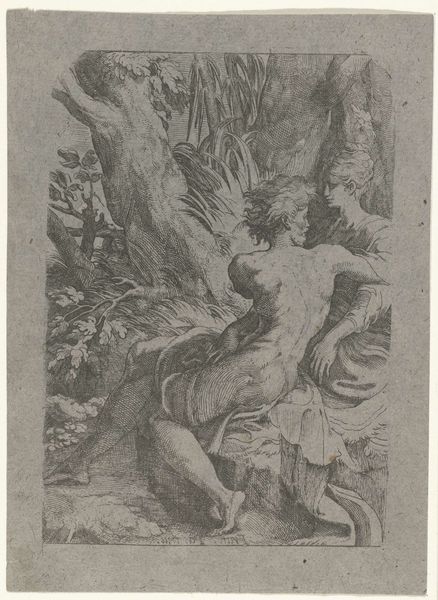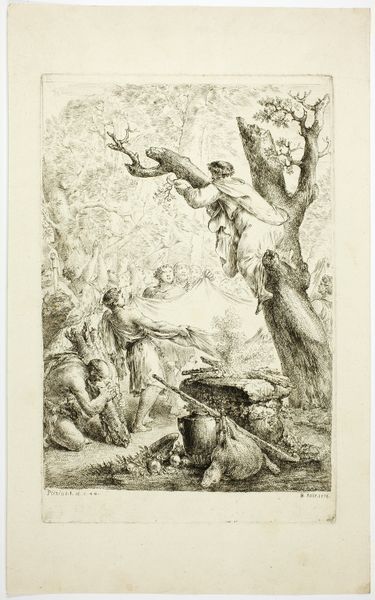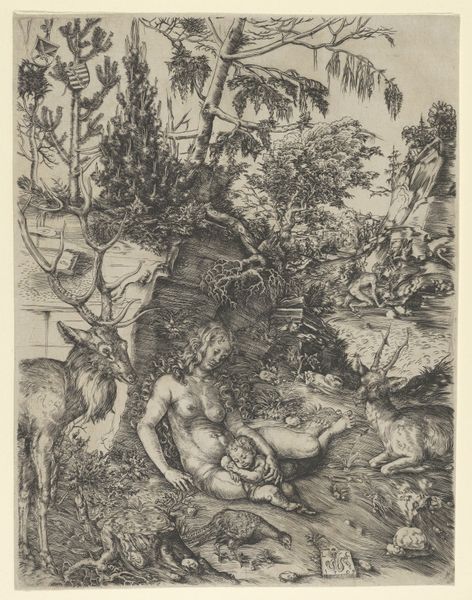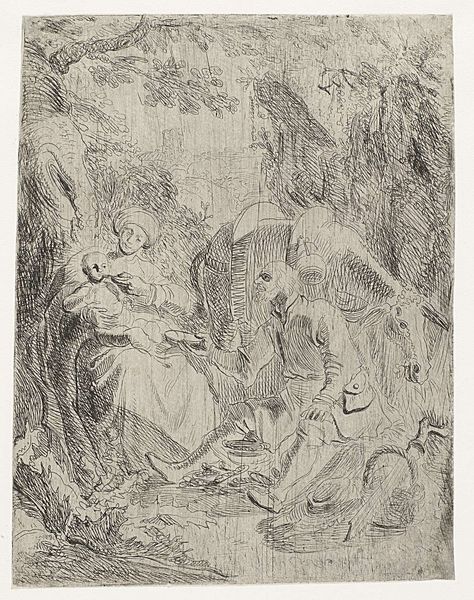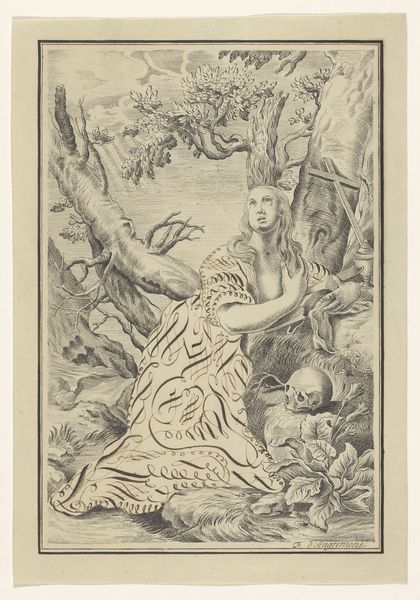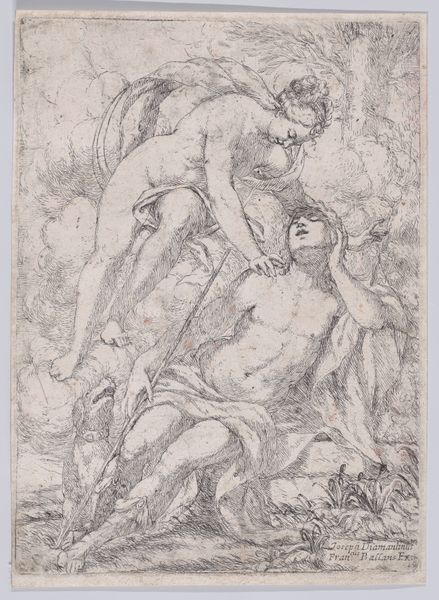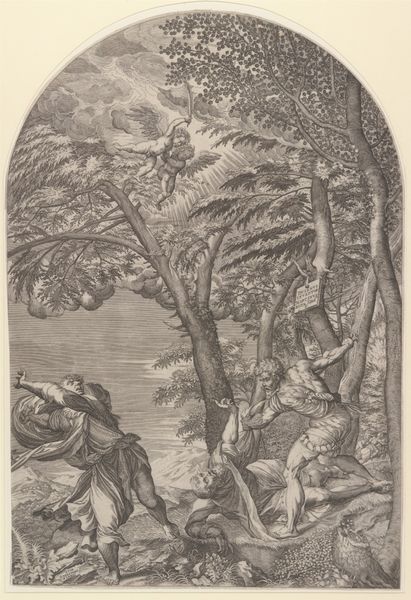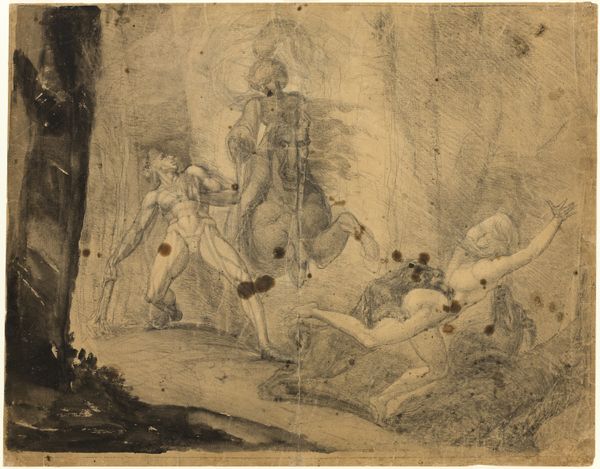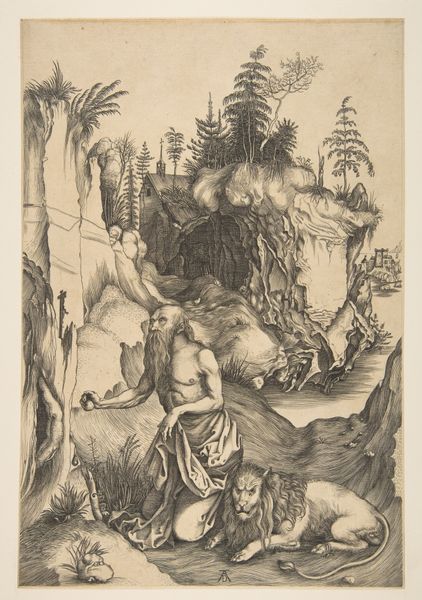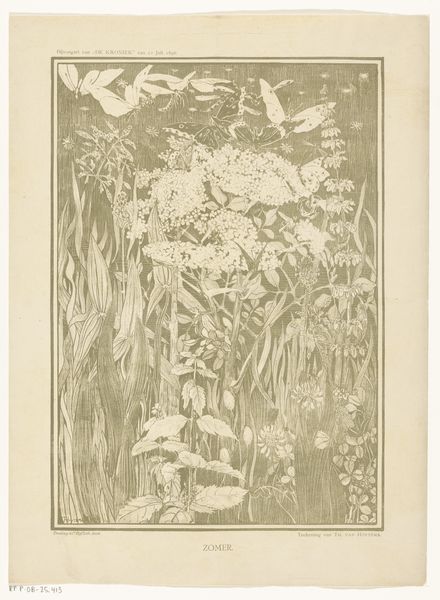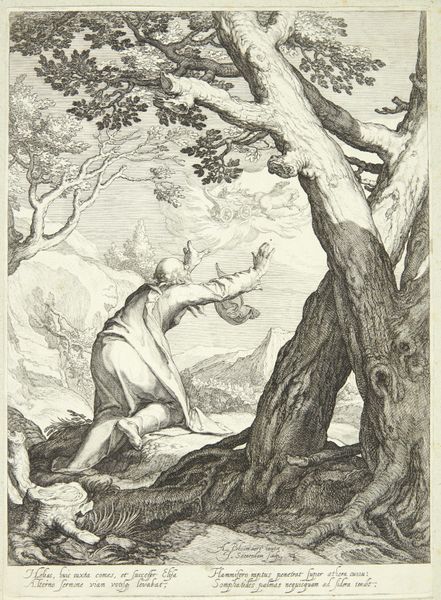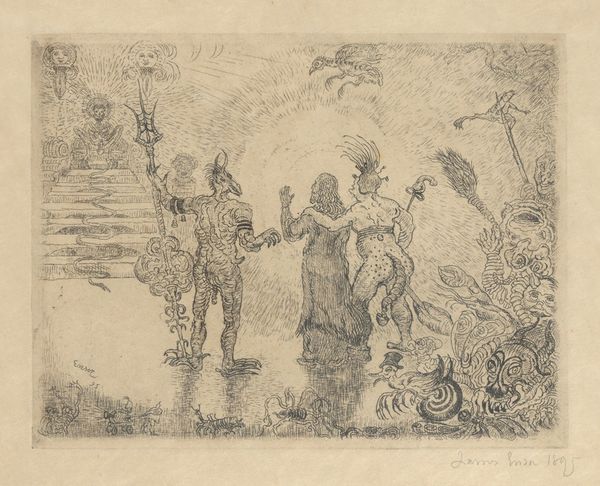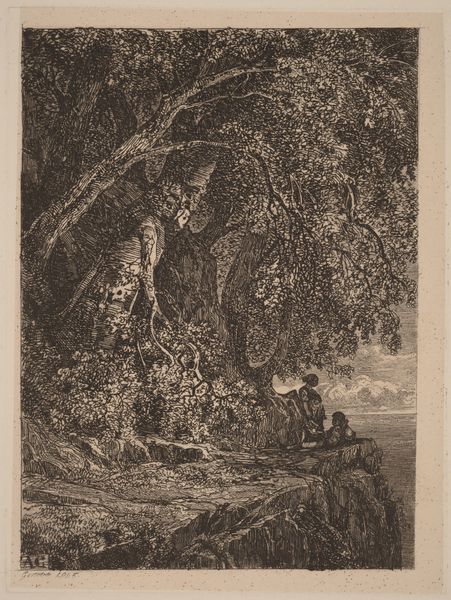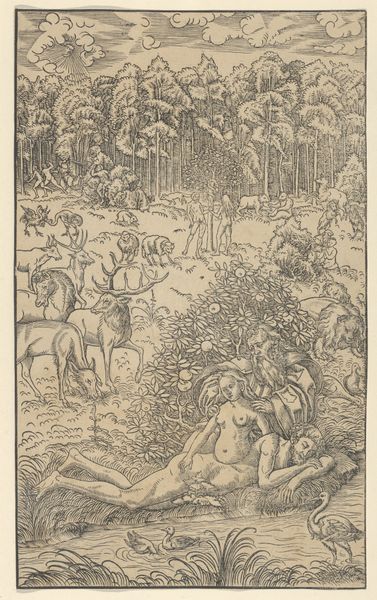
drawing, gouache, ink, indian-ink
#
pencil drawn
#
drawing
#
light pencil work
#
gouache
#
pencil sketch
#
incomplete sketchy
#
charcoal drawing
#
possibly oil pastel
#
11_renaissance
#
ink
#
fluid art
#
pencil drawing
#
indian-ink
#
pen-ink sketch
#
13_16th-century
#
watercolor
Copyright: Public Domain
Editor: We're looking at Hans Leu the Younger's "Der Heilige Hieronymus büßend," or "Saint Jerome in Penitence," made around 1511. It appears to be an ink and gouache drawing, and I’m struck by its detailed landscape. It feels both serene and melancholic at the same time. What pulls you into this piece? Curator: Oh, the lure of a good hermit, eh? For me, it's how Leu contrasts Jerome’s inner torment with the detailed calmness of the natural world surrounding him. Imagine the scratching of the pen, almost mimicking Jerome's restless thoughts, all played out in the muted tones. The very act of drawing becomes a kind of penance. It makes me wonder, doesn’t it, about our own inner landscapes and how we find—or fail to find—peace within the chaos. Does the landscape echo Jerome's mood, or offer a kind of sublime solace? Editor: I see what you mean about the contrasting elements. Is the lion significant beyond the saintly narrative? Curator: The lion, you see, becomes both a symbol of Jerome's scholarship and a beast tamed by faith and repentance. It is like a fragment of his fractured soul that is at one time his penance and other times his companion. Also, think about it--artists often used animal figures, sometimes they gave them rather more attention than their saintly counterpart. Leu also does a good job, doesn’t he, to capture this somewhat more-than-divine nature, don't you think? Editor: That’s a fascinating take – a companion as well as a symbol! Curator: Exactly! Art is a journey, isn't it? Editor: I never thought of it that way before, and your thoughts really helped clarify it for me. Thanks!
Comments
No comments
Be the first to comment and join the conversation on the ultimate creative platform.
